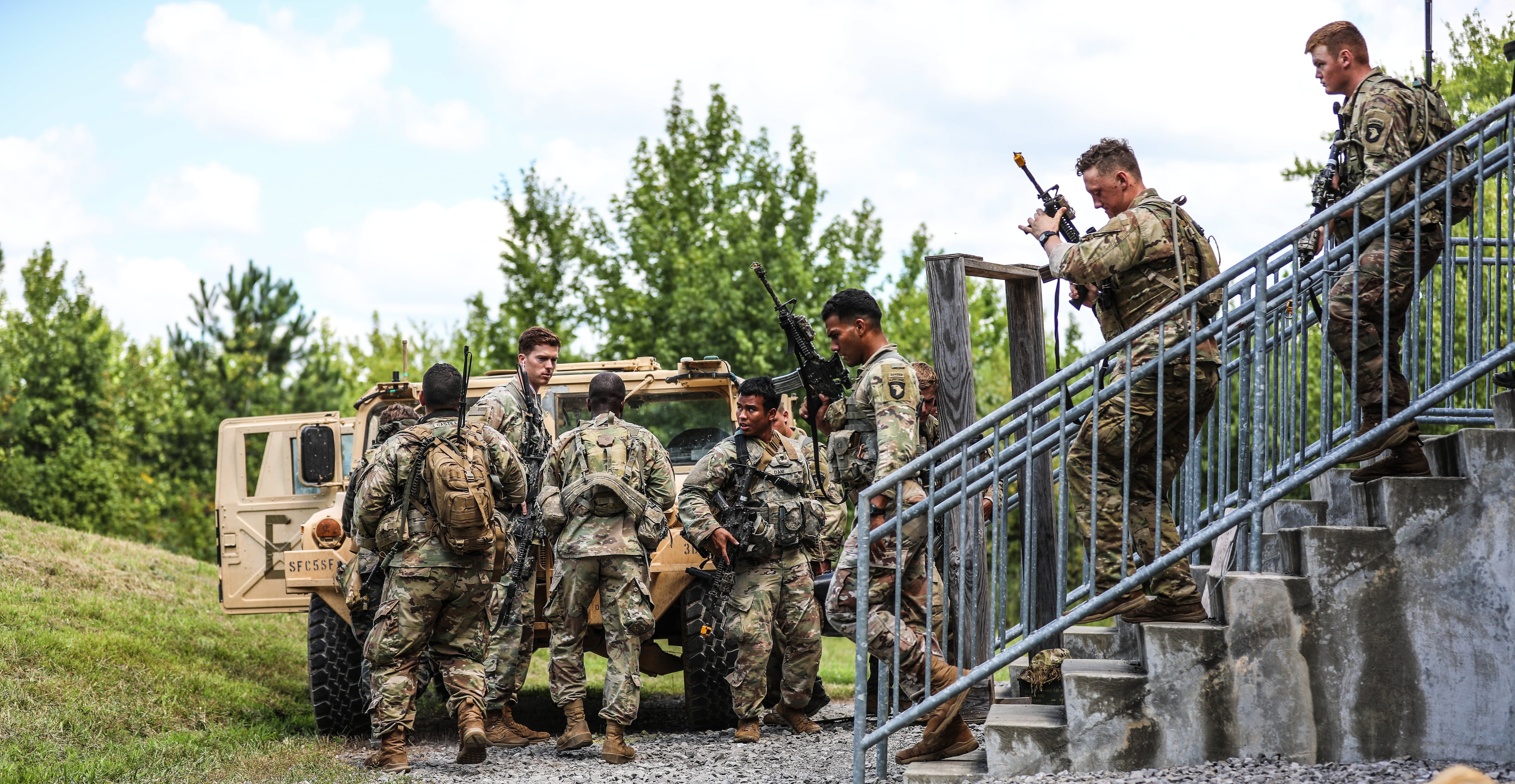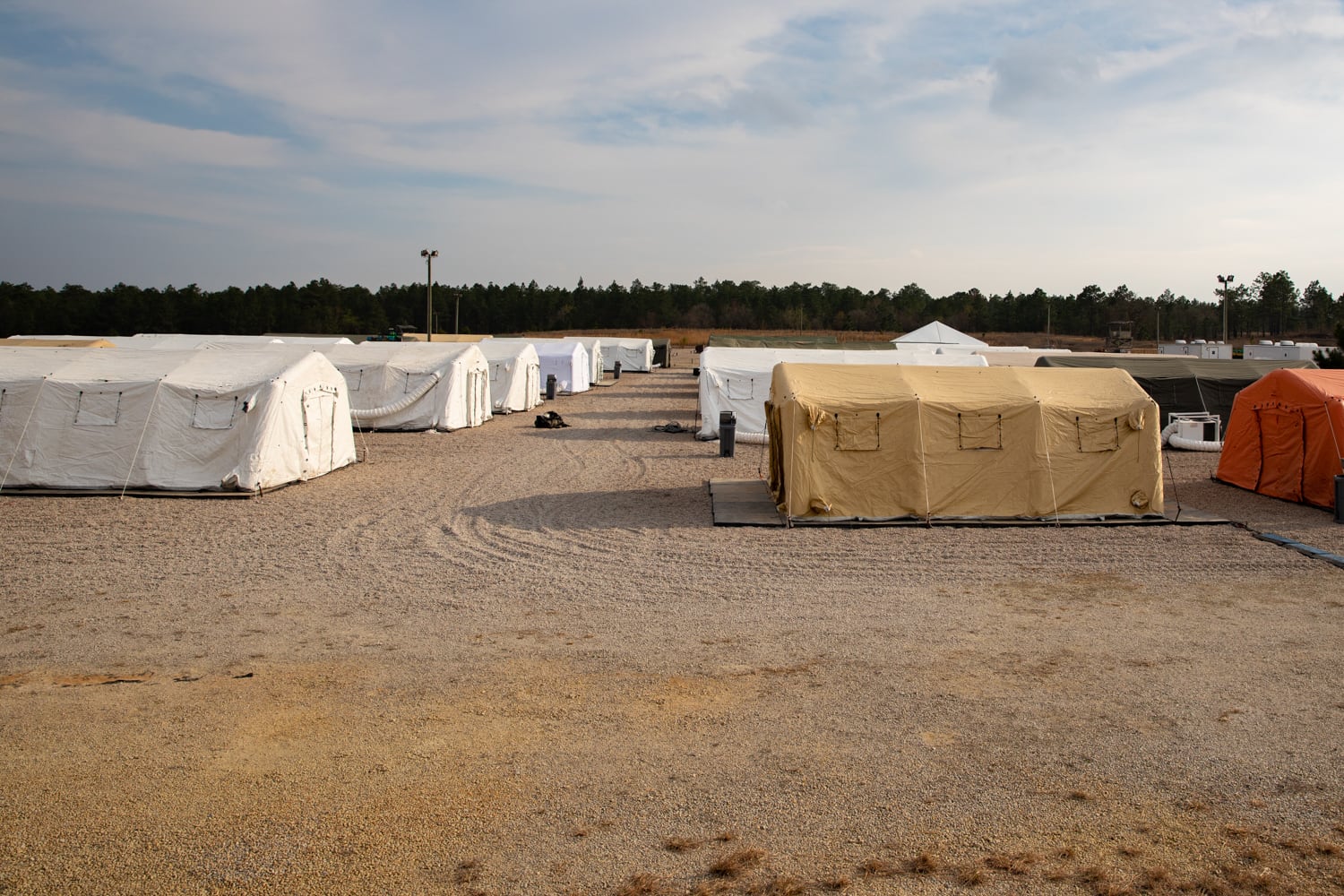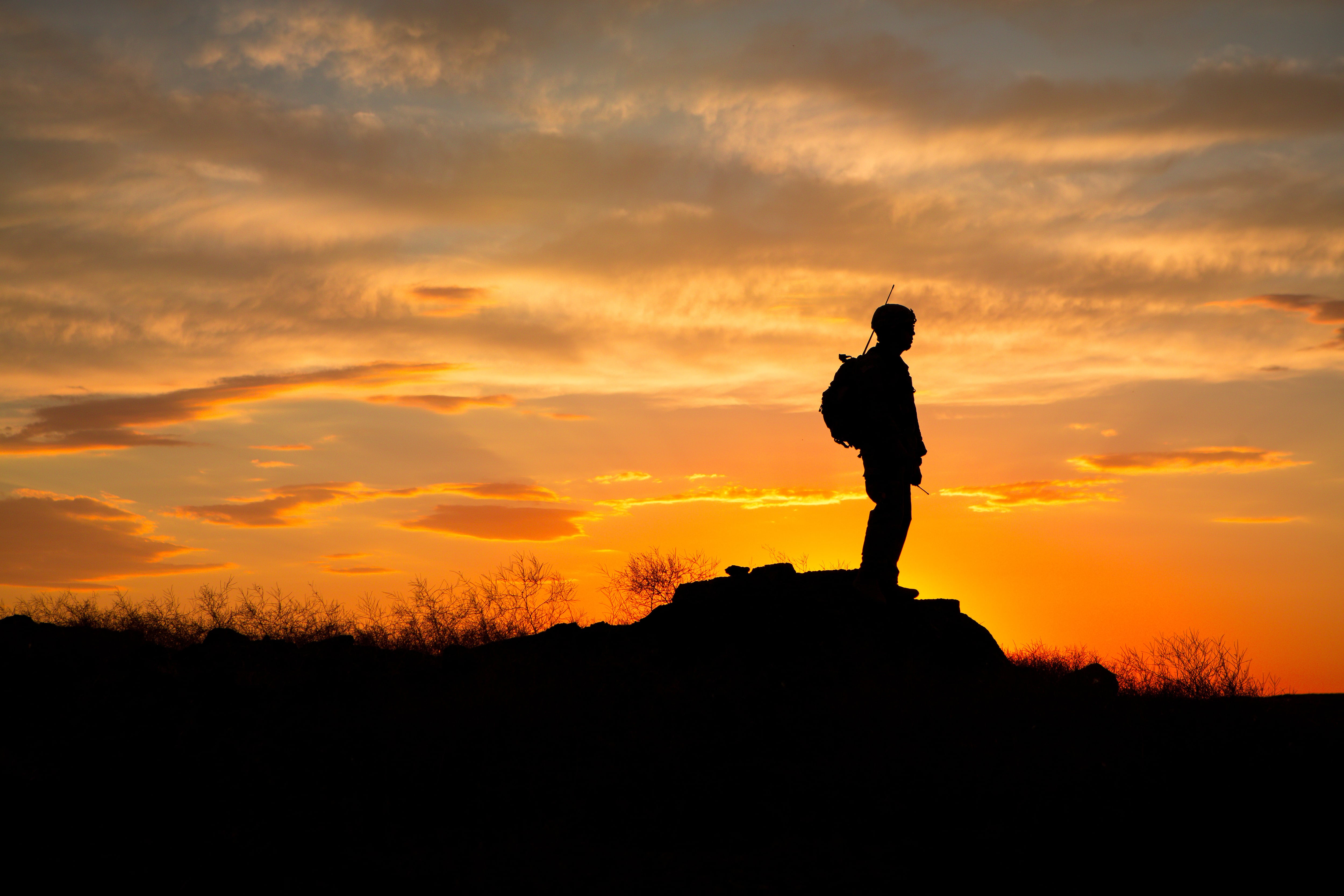Leave is cancelled, soldiers are quarantined, training is nixed and families are left in limbo as the Pentagon braces for the novel coronavirus.
Though the measures are understandable — and even advisable — soldiers’ lives have been upended.
The biggest impact hasn’t been from the invisible virus thus far, but instead from guidance designed to curtail its impact. Late last week, Pentagon officials placed severe restrictions on overseas and domestic travel, including those attempting to take leave before deployment and those moving on government orders.
“I’m stuck here in Germany with no personal vehicle, no household goods, I have three kids, two dogs, a wife and I live off-post,” said one soldier who was supposed to move this month to Fort Rucker, Alabama. “And we’re still required to report every day for work unless we’re feeling ill.”
Rental cars aren’t cheap for a family of five. And that expense would stack with the appraisal, home inspection fees and costs of applying for a mortgage,that he and his wife lost on the house they were planning to close on next week.
Two of his children are school-age, and though there’s talk of beginning online education, all their computers are currently at Fort Rucker. The soldier was moving to the post to begin warrant officer candidate school, but he’ll now be missing that class start date and was told he can’t simply be rolled to the next one.
“I’ll have to wait anywhere from four to six months for another class,” he added. “So I’ll be stuck in Germany for the two-month travel ban, and four to six months on top of that.”
The Army said soldiers can apply for hardship pay. They also established a hotline to answer questions for those facing financial problems in the wake of the pandemic.
One soldier enroute to a training assignment when the travel ban came out Friday was told to turn his car around after driving 900 miles.
“There’s not any guidance on how I will be paid for the gas and lodging," the soldier, stationed at Fort Polk, said. “Finance office referred me to a 1-800 number that [was] so busy it [hung] up automatically.”
There are exemptions to the travel ban policy being made, but only in rare circumstances. The soldier stuck in Germany applied for that exemption, but was denied without explanation.
“What doesn’t make sense, is we were briefed at [the military personnel division] that if you’re ETS’ing or retiring, you can still go home, you can still take your family home,” said the soldier stuck in Germany.
Army officials across each installation mentioned in this article said the seriousness of the coronavirus requires a serious response.
“We certainly understand the frustration, anxiety, and inconvenience COVID-19 is causing,” said Army Europe spokesman Col. Joe Scrocca. “That’s why good communication is so important.”
To their credit, commanders have been active in talking to the force this week through online town halls and social media updates about gate changes, commissary shortages, park closures and event cancellations.
But the travel restrictions have also impacted the lives of those heading to war zones. While the Pentagon has announced a temporary pause in deployments to Afghanistan, others are still underway.
“We will be in Iraq for nine months again, and we’re told the deployment has been the only thing not effected by the corona virus,” said a 4th Infantry Division soldier at Fort Carson, Colorado.
That soldier is one of many confined to the local area to limit the potential for the virus to spread.
“I was planning on going home in Texas to spend the two weeks with my family, and ask my girlfriend’s parents for their permission to propose,” he said. “For once we were given a decent head’s up on leave dates and everyone booked flights and made their travel plans to be with their families.”
“[Then] we were told [this week] that we could no longer travel past the 25 mile limit and had to cancel our plans and hope for our refunds, which not everyone will get without help from chain of command,” he added.
RELATED

Many soldiers were hoping to take advantage of the cheap travel, hotels and gas prices for a much needed small vacation that they could easily afford, the soldier noted.
But the travel restrictions are necessary to slow the spread of the virus, Fort Carson officials cautioned in responses to Army Times.
“There isn’t currently a policy or directive that requires the Army to reimburse personal travel, but this is a very dynamic situation,” post officials said. “New decisions and guidance are coming out daily. If there is a change in policy, we will alert our community immediately."
The Fort Carson soldier’s unit, like most preparing for combat deployments, has been exhausted by field exercises, a brigade-level rotation to the National Training Center at Fort Irwin, California, arms inspections and gunneries. Leave hasn’t been plentiful during the training cycle, and the options to relax locally are limited now.
“Most of the city is being closed for 30 days as well so even if the families could get time off work, and if travel permitted, we couldn’t even enjoy a majority of outings with them because of the limitations of post rules,” the soldier said. “Most soldiers I work with are canceling their leave because it’s not worth wasting the days in a ‘safety bubble.'"
At Fort Bragg, North Carolina, the 82nd Airborne Division’s 3rd Brigade began trickling home from Afghanistan. Rather than being met by family, young soldiers who normally lived in the barracks were swept into quarantine. Even those who do live off-post couldn’t spend time with extended family, and were forced to enter quarantines at their own homes.
Leave was cancelled for all in the meantime.
“I’d seen some of [1st Brigade] come back from their Kuwait deployment got a heroes welcome, while us coming from Afghanistan got nothing,” said one paratrooper back from his first combat deployment to Afghanistan. “It made us mad and feel ignored. But I understand the decision."
The 82nd Airborne’s commander, Maj. Gen. James J. Mingus, greeted the first paratroopers heading into quarantine after they got off the planes. Mingus apologized to the soldiers for not being able to give them a welcome home ceremony like he had after his first deployment years back. Division officials said this isn’t what they wanted to do, but what they had to.
RELATED

Married soldiers lucky enough to escape barracks quarantine were told to keep six feet from their family at home.
“The whole 6 feet thing isn’t realistic at all,” said a paratrooper at home with his wife. “I doubt anyone is abiding by that rule.”
The first returning group of paratroopers slept on cots at Green Ramp, a staging area for parachute operations on Fort Bragg. They moved into barracks on base after the rooms were cleared out.
“[Mingus] said they’ll supply beer for those soldiers as well,” the paratrooper at home with his wife said. “Unfortunately for those coming later ... they may not have barracks. They may be in tents on FOB Patriot.”
FOB Patriot is a makeshift training area on Fort Bragg used as a simulated forward operating base like those in Iraq and Afghanistan.
Paratroopers signed a memo acknowledging they understood that violating quarantine could result in punishment under the Uniform Code of Military Justice. That’s for those on- and off-post.
“Mingus put out that while we are most likely not infected, there could’ve been someone that was infected and we were on the plane with them,” the paratrooper said. “So it’s all precautionary. While we are fairly healthy, our grandparents coming to see us could get infected and die. So it isn’t just to protect us, but our families.”
Elsewhere in the force, life goes on, but with a bit more suspicion.
“The daily work day continues as normal,” said a 10th Mountain Division soldier at Fort Polk. “There’s rumors of corona virus at Fort Polk but nothing is confirmed."
There are some soldiers who are “malingering" to stay out of work, claiming to have symptoms and entering quarantine, he said. But there are other soldiers who legitimately should be tested.
“There are many soldiers who have coughs but are not tested,” the 10th Mountain soldier added. “Social distancing is non-existent and formations are still held."
The general consensus among his unit, the soldier explained, is that the Army is not doing enough.
Though base gyms were closed during the early mornings, the 10th Mountain Division at Fort Polk is continuing to do physical training like normal. PT is supposed to be in groups no larger than nine people, according to a soldier there, but units are still doing it at the platoon-level.
“We’re just counting down the days until a soldier here gets the virus before they implement real actions,” the 10th Mountain Division soldier said.
Kyle Rempfer was an editor and reporter who has covered combat operations, criminal cases, foreign military assistance and training accidents. Before entering journalism, Kyle served in U.S. Air Force Special Tactics and deployed in 2014 to Paktika Province, Afghanistan, and Baghdad, Iraq.





